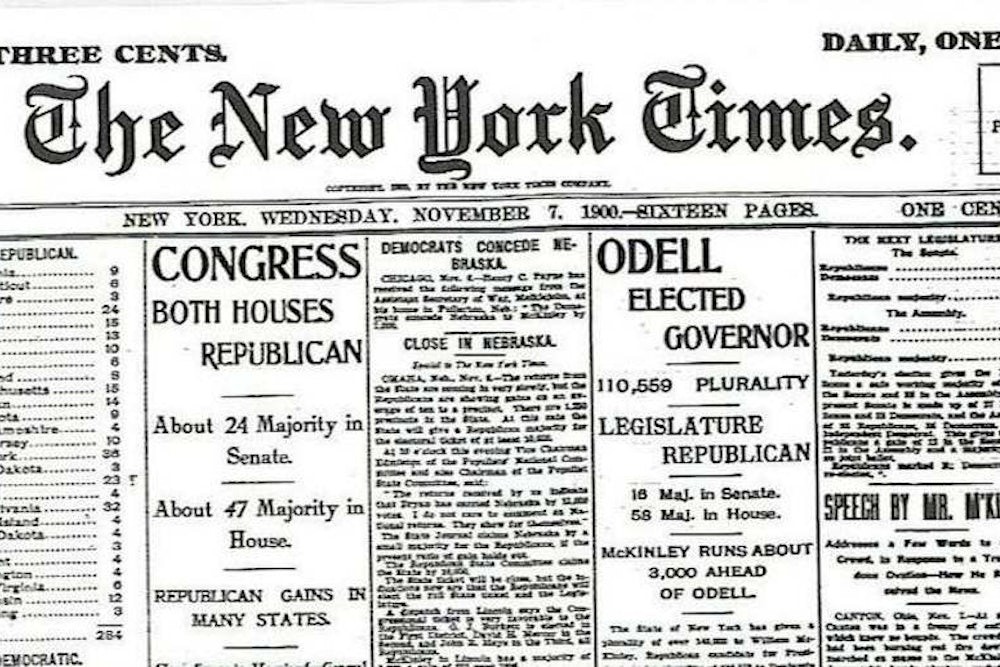The huge and captivating week-long series by Andrea Elliott in the New York Times chronicling the life of Dasani, a homeless girl living in a Brooklyn shelter is, as has been noted, ground-breaking in several ways, including the paper’s decision to put the whole series up online at once, Netflix-style, for those who wanted to plow all the way through at once. Less noted is that the series has brought the Gray Lady past a new marker: the first use of a certain expletive in a New York Times article. It came in the part that ran in Thursday’s paper, in a sorrowful scene in which Dasani’s mother Chanel drags her and her seven siblings to another end of Brooklyn to see a random psychotherapist just so that she can collect $10-per-kid carfare reimbursement from Medicaid and thereby pay for Dasani to go on a school field trip to Washington, D.C.:
In pairs, they sprint across a six-lane highway and enter the Grant Avenue subway station, ducking under the turnstile to meet their mother. After they board the A train, she hands them a bag of lukewarm Popeyes chicken, furnished by a stranger.
By the time they get off at Jay Street, their stomachs are full and the mood is lifted. Dasani spots an umbrella on the ground. It still works, opening to reveal an intricate pattern of white and black flecks. She twirls it around and, when the 103 bus pulls up, carefully closes it.
Dasani and Nijai race to the back of the bus, where the motor keeps the seats warm. They sit pressed together, newly reconciled. Dasani is soon asleep. The little ones watch, thumbs in mouth, as their mother closes her eyes. Every time the bus slows, she snaps awake.
At Church Avenue, the children and their mother pile off. The street looks familiar, but Chanel is unsure.
“We got off at the wrong stop,” Dasani announces.
Chanel fixes her gaze on Dasani.
“Shut the fuck up,” she says. “You know, that’s one thing I don’t like about you — your negativity. You always talkin’ about the problem. You got a solution?”
The word surfaces again a little bit lower, in the same scene:
Chanel’s fury mounts. She reaches for the same words every time, the kind that echo for days in Dasani’s head.
Dasani always gotta have the answer.
She think she special.
She think she some-fucking-body.
She nobody.
Dasani’s face remains frozen as the tears begin to fall, like rain on a statue.
Now, as true Times Kremlinologists will note, the paper allowed the word into its pages when it ran excerpts from the Starr Report in 1998: “In a recorded conversation later on October 6, Ms. Lewinsky said she wanted two things from the president. The first was contrition: he needed to ‘acknowledge…that he helped fuck up my life.’” And it surfaced again this past August in a brief excerpt of Jonathan Lethem’s new novel that was blurbed in the Sunday style supplement T Magazine: “Quit fucking black cops or get booted from the Communist party.” But as the Atlantic Wire noted when it drew attention to that usage, “That line only appears in the print edition of the T magazine, which perhaps has different standards than the newspaper.”
Well, not anymore. It’s tempting to shrug at this new barrier broken, given how much profanity saturates our world, but this still seems worth noting, given how firmly the Times has stood against the tide until now, with sometimes comical results. When even the Washington Post decided to report verbatim what Dick Cheney had said to Vermont Senator Patrick Leahy in 2004, the Times daintily reported the exchange thusly: “The vice president turned and stalked away, using an obscene phrase to describe what he thought Mr. Leahy should do.”
Granted, the Times is likely not to turn into a Jim Leyland monologue anytime soon—the Dasani series was, in so many ways, a special case in its ambitious attempt to capture reality for this one girl and her family. On her blog, the paper's public editor, Margaret Sullivan, suggested as much:
Some readers have questioned the use of vulgarity in the series, including two instances of “the f-word” in Thursday’s installment, the most notable of which is in a quotation from Dasani’s mother as she addresses her directly. It’s highly unusual for The Times.
The associate managing editor for standards, Philip B. Corbett, explained:
"We had a very thorough discussion of the use of the vulgarities in that passage, which are certainly not the norm for us. The writer and editors avoided language like that in other places. But they made a strong argument that the full quotations were important in this very crucial scene. In the end, we decided that for readers, more would be lost than gained if we tried to write around those passages here. And we concluded that using that language in this one spot — but not repeatedly scattered throughout the articles — would not be likely to distract or offend many readers. Our basic guidelines about avoiding vulgarities and obscenities haven’t changed, but we all recognize that there are cases where an exception is justified."
I agree with that decision.
But make no mistake, this precedent will cited by plenty a Times reporter in the future as he or she tries to make the case with his editors for gritty verisimilitude. With that one rant against her spunky daughter, Chanel has left her mark in the annals of American journalism.
